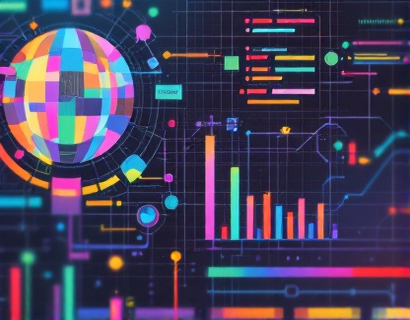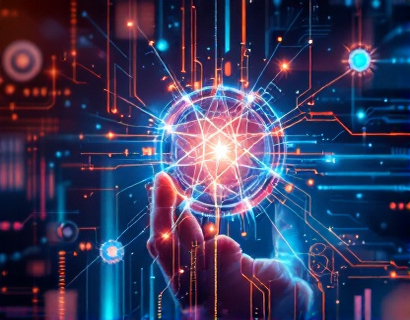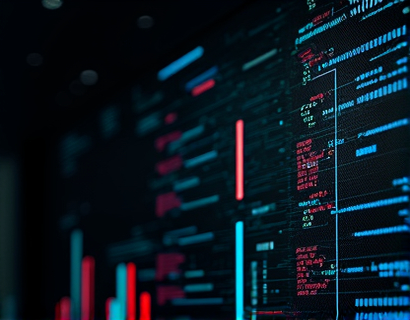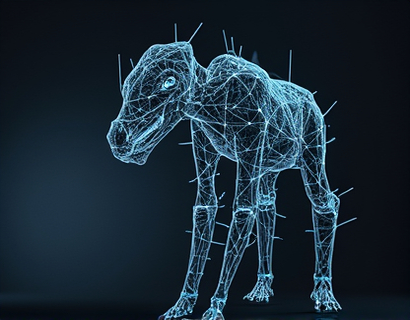Transforming Digital Experiences: The Synergy of AI and Crypto
The intersection of artificial intelligence (AI) and cryptocurrency is giving rise to a new era of digital transformation. This convergence is not just a technological curiosity but a powerful force reshaping how we interact with digital services and applications. By combining the decentralized, secure nature of blockchain with the intelligent, adaptive capabilities of AI, we are witnessing the creation of next-generation solutions that enhance user experiences and redefine industry standards.
Understanding the Basics: AI and Crypto
To fully appreciate the impact of this convergence, it's essential to understand the fundamental concepts of both AI and cryptocurrency. Artificial intelligence refers to the simulation of human intelligence processes by machines, particularly computer systems. These processes include learning (the acquisition of information and rules for using it), reasoning (using rules to reach approximate or definite conclusions), and self-correction. AI technologies such as machine learning, natural language processing, and computer vision are revolutionizing various sectors, from healthcare to finance.
Cryptocurrency, on the other hand, is a digital or virtual currency that uses cryptography for security. It operates on a decentralized network, typically a blockchain, which ensures transparency, immutability, and security of transactions. Bitcoin, the first and most well-known cryptocurrency, paved the way for thousands of alternative coins (altcoins) and decentralized applications (dApps). The underlying blockchain technology has proven to be a robust platform for various use cases beyond just currency.
The Role of Blockchain in AI
Blockchain technology offers several features that complement AI's capabilities. Decentralization, for instance, allows for the creation of AI models that are not controlled by a single entity, reducing the risk of bias and enhancing trust. Smart contracts, self-executing contracts with the terms directly written into code, can automate and enforce AI-driven processes, ensuring transparency and reducing the need for intermediaries.
Moreover, blockchain provides a secure and transparent way to manage data, which is crucial for AI systems that rely heavily on large datasets. The immutability of blockchain ensures that data used for training AI models remains unaltered, thereby maintaining the integrity of the AI's decisions. This is particularly important in sectors like finance and healthcare, where data accuracy and security are paramount.
AI-Enhanced Cryptocurrencies
The integration of AI into cryptocurrency is leading to the development of smart, adaptive, and more efficient digital currencies. AI can optimize various aspects of cryptocurrency networks, from transaction processing to security measures. For example, machine learning algorithms can predict and mitigate potential security threats by analyzing patterns and anomalies in transaction data.
One notable application is in the realm of stablecoins, which are cryptocurrencies designed to maintain a stable value. AI can help in managing the supply and demand dynamics of stablecoins by predicting market movements and adjusting the issuance of new tokens accordingly. This not only stabilizes the currency but also enhances user confidence.
Decentralized AI Platforms
Decentralized AI platforms are emerging as a key area where AI and cryptocurrency converge. These platforms allow developers to build, train, and deploy AI models on a decentralized network, leveraging the computing power of the blockchain. This approach democratizes access to AI technologies, enabling a broader range of developers to participate in the AI ecosystem.
One of the significant advantages of decentralized AI platforms is the ability to create AI models that are transparent and auditable. Since the code and data are stored on a blockchain, users can verify the integrity and functionality of AI models, fostering trust and collaboration. This is particularly beneficial in industries where transparency is crucial, such as supply chain management and financial services.
Enhanced User Experiences through AI and Crypto
The combination of AI and cryptocurrency is not only transforming backend processes but also significantly enhancing user experiences. AI-driven personalization, powered by blockchain, ensures that user data is secure and privately managed. This allows for highly personalized services without compromising on privacy.
For instance, AI can analyze user behavior and preferences to recommend tailored content, products, or financial services. Blockchain ensures that this data is securely stored and managed, giving users control over their information. This synergy results in a more trustworthy and user-centric digital environment.
Case Studies: Real-World Applications
Several projects are already demonstrating the potential of AI and cryptocurrency in creating innovative solutions. One such example is a decentralized lending platform that uses AI to assess creditworthiness and automate loan processing. By leveraging blockchain, the platform ensures transparency and security in the lending process, reducing fraud and increasing accessibility to credit.
Another case is an AI-powered trading bot that operates on a cryptocurrency exchange. This bot uses machine learning to analyze market data and make informed trading decisions. The decentralized nature of the platform ensures that the bot's operations are transparent and free from manipulation, providing users with a fair and efficient trading experience.
Challenges and Considerations
Despite the promising potential, the integration of AI and cryptocurrency is not without challenges. One of the primary concerns is regulatory compliance. The decentralized and often anonymous nature of cryptocurrencies can pose challenges for regulators aiming to enforce laws and prevent illegal activities. Ensuring that AI-driven crypto applications comply with existing regulations while maintaining their decentralized essence is a complex task.
Another challenge is the technical complexity involved in building and maintaining these systems. Developing AI models that can run efficiently on a blockchain requires significant expertise and resources. Additionally, the scalability of blockchain networks remains a concern, as they need to handle increasing amounts of data and transactions to support AI applications.
Future Prospects
The future of AI and cryptocurrency is bright, with numerous opportunities for innovation and growth. As technology advances, we can expect more sophisticated AI models that can run seamlessly on blockchain networks. The development of more scalable and efficient blockchain platforms will further enhance the capabilities of AI-driven applications.
Moreover, the increasing adoption of blockchain and AI in various industries will drive demand for more integrated solutions. This will lead to the creation of new business models and services that leverage the strengths of both technologies. The potential for cross-industry collaboration is immense, from healthcare and finance to education and entertainment.
Conclusion
The convergence of AI and cryptocurrency is revolutionizing the digital landscape, offering powerful tools that enhance security, transparency, and user experience. By understanding and embracing this synergy, we can unlock new possibilities and drive the next wave of digital innovation. As the technology continues to evolve, the potential for transformative applications is limitless, promising a future where digital experiences are more secure, efficient, and user-friendly than ever before.









































